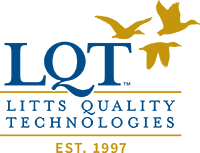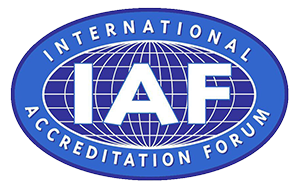(Per ISO 19011:2018 Guidelines for Auditing Management Systems)
As defined in ISO 9000:2015 Quality Management Systems – Fundamentals and Vocabulary an audit is a “systematic, independent and documented process for obtaining audit evidence and evaluating it objectively to determine the extent to which audit criteria are fulfilled.”
One of the requirements in standards is that organizations must conduct internal audits of the their implemented management system. This training provides the identified auditor candidates the necessary skills to conduct effective 1st & 2nd party audits. These programs can also be used as an excellent refresher course for current auditors.
The Lead auditor courses help to prepare attendees with the knowledge to become 3rd party auditors and conduct audits for Certification Bodies (CBs). It also provides internal auditors with the understanding of the methods that CB auditors use when conducting onsite audits.
Litts Quality Technologies provides training courses throughout the year on various quality topics. Exercises are used throughout the training to help attendees gain knowledge of the standard requirements and how to conduct effective Process Based Audits. See full course descriptions here.
System Auditor Training is provided for the following standards:
- ISO 9001:2015 Quality Management Systems – (3-day) Internal Auditor Training – Exemplar Global Certified
- ISO 9001:2015 Quality Management Systems – (4-day) Lead Auditor Training– Exemplar Global Certified
- ISO 14001:2015 Environmental Management Systems – Requirements with Guidance for Use – (3-day) Internal Auditor Training – Exemplar Global Certified
- ISO 14001:2015 Environmental Management Systems – Requirements with Guidance for Use – (4-day) Lead Auditor Training – Exemplar Global Certified
- ISO 17025:2017 General Requirements for the Competence of Testing and Calibration Laboratories – (3-day) Internal Auditor Training – Exemplar Global Certified
- ISO 17025:2017 General Requirements for the Competence of Testing and Calibration Laboratories – (4-day) Lead Auditor Training
- ISO 13485:2016 Medical Devices – Quality Management Systems – Requirements for Regulatory Purposes – (3-day) Internal Auditor Training – Exemplar Global Certified
- ISO 13485:2016 Medical Devices – Quality Management Systems – Requirements for Regulatory Purposes – (4-day) Lead Auditor Training– Exemplar Global Certified
- ISO 15378:2017 Primary Packaging Materials for Medicinal Products – Particular Requirements for the Application of ISO 9001:2015, with Reference to Good Manufacturing Practice (GMP) – (3-day) Internal Auditor Training – Exemplar Global Certified
- ISO 15378:2017 Primary Packaging Materials for Medicinal Products – Particular Requirements for the Application of ISO 9001:2015, with Reference to Good Manufacturing Practice (GMP) – (4-day) Lead Auditor Training– Exemplar Global Certified
- Special Systems or Additional Standards defined by the customer.
At the end of these training session, participants will be able to:
- Understand the requirements of the relevant standard.
- Understand the terms and definitions used in auditing.
- Understand how to recognize “Positive Aspects” of a system.
- Understand how to recognize a nonconformance.
- Write clear nonconformance statements.
- Apply the Six Steps of Auditing Activities based upon ISO 19011:2018 Guidelines for Auditing Management Systems.
-
Step 1 – Initiating the Audit
-
Step 2 – Preparing Audit Activities
-
Step 3 – Conducting Audit Activities
-
Step 4 – Preparing, approving and distributing audit report
-
Step 5 – Completing Audit
-
Step 6 – Conducting audit follow-up
-
- Conduct internal, external or supplier audits for your organization.
- Conduct audits at other organization locations, corporate offices, potential suppliers, or existing suppliers.
Exercises and case studies are used throughout these training programs to help attendees understand auditing concepts.
Witnessing and coaching your internal audit team as they perform an actual audit can be included in the training program.




